Potash Gold: Brazil’s Fertilizer Initiatives, the Autazes Potash Project and Mura People
Scroll Down to Read
-
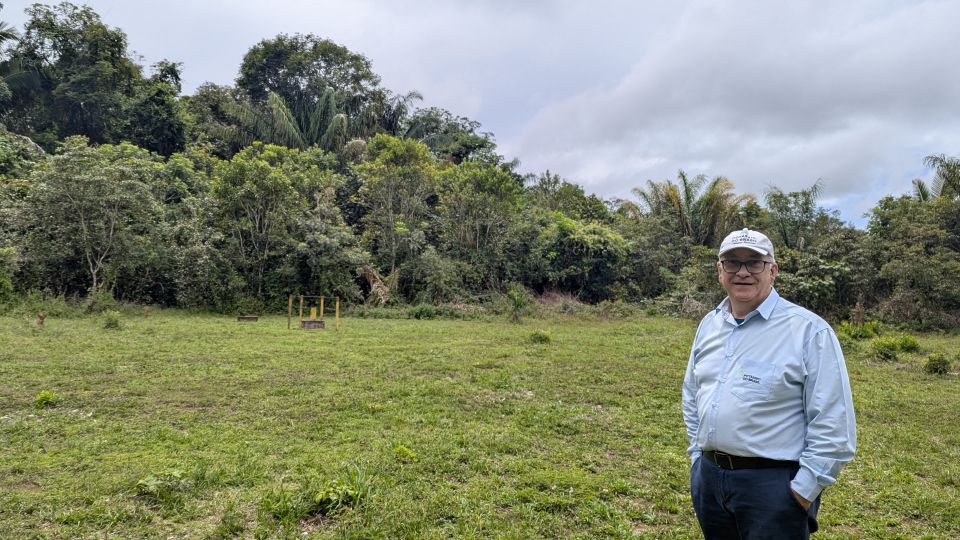
-
1 of 11
Potash Mining Site

Adriano Espeschit, President of Potássio do Brasil stands in the clearing near a drilling site surrounded by less than 5-year-old trees and cleared pastureland, 12 kilometers from the Madeira River, near Autazes, a city in Brazil’s State of Amazonas. This clearing is where plant buildings will be constructed.
-
2 of 11
Road to Port
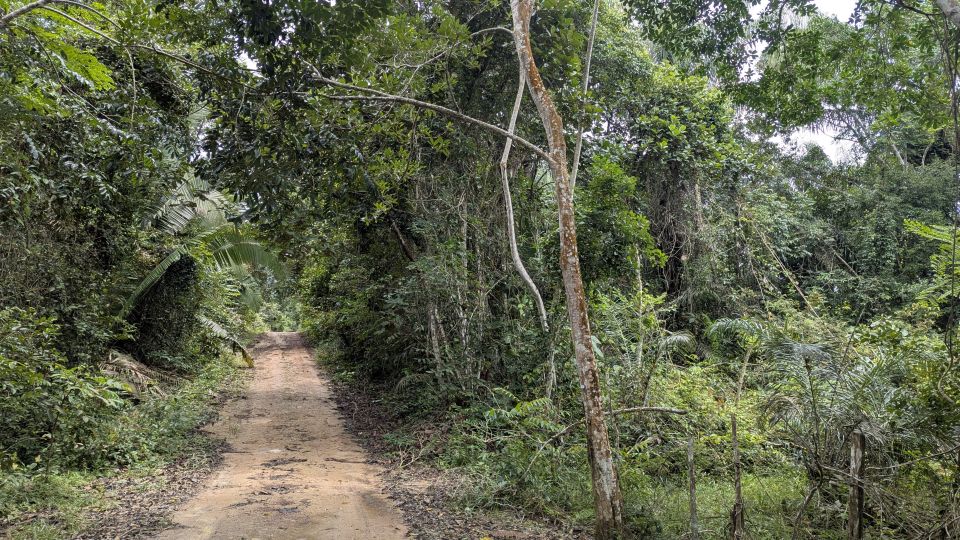
Potássio do Brasil will construct a paved road from its plant to the Urucurituba Village on Madeira River.
-
3 of 11
Urucurituba Village
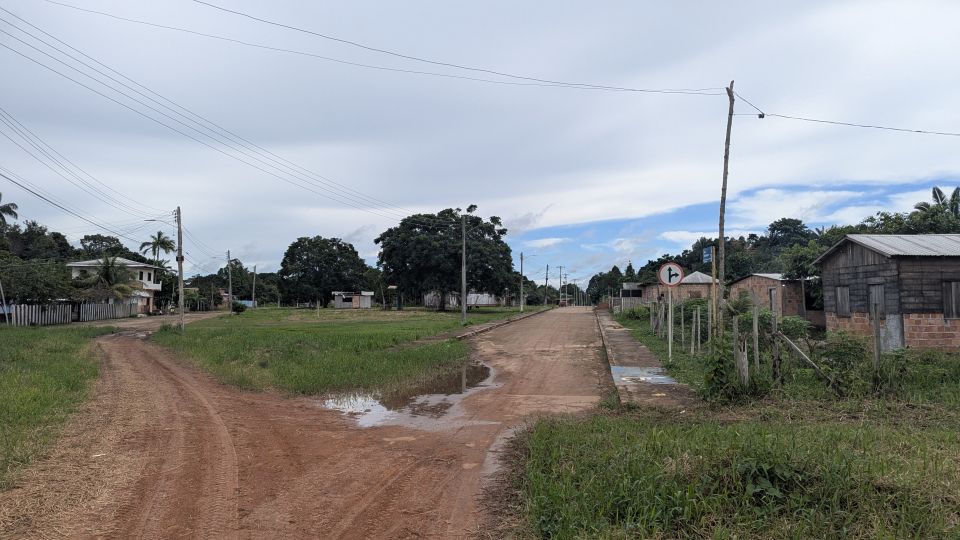
The village of Urucurituba belongs to the municipality of Autazes, in Amazona, Brazil, with a population more than 1,700 indigenous and non-indigenous people in 2020.
-
4 of 11
Urucurituba Village Square
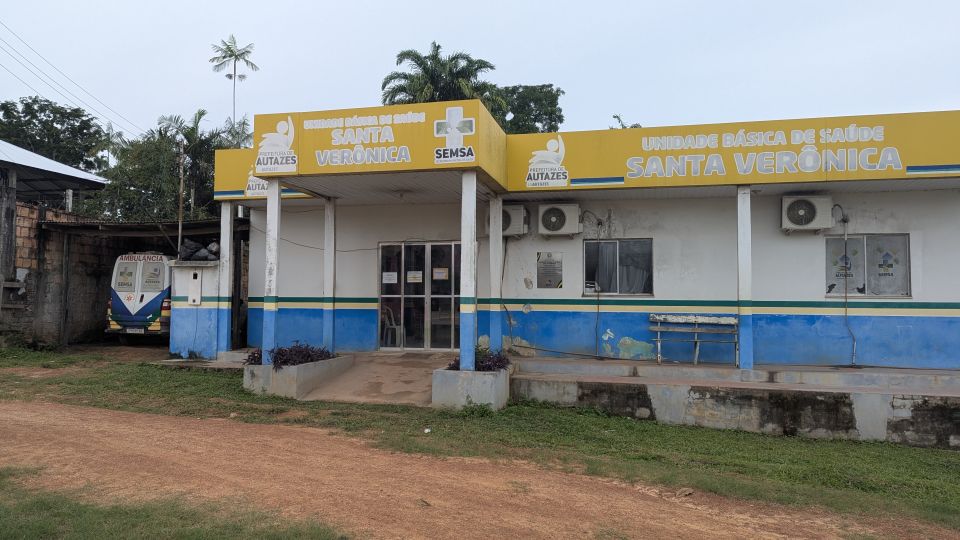
A hospital located in Urucurituba Village town square near where the port will be built.
-
5 of 11
Port Site
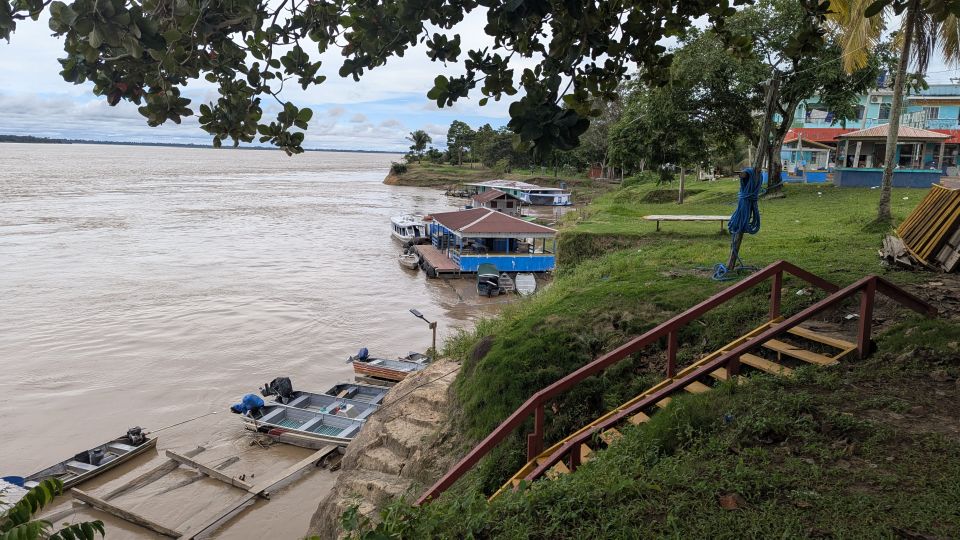
The current Urucurituba Village port hosts a gas station and small walkway. Potássio do Brasil plans to build a larger port that will allow for transporting potash by barge.
-
6 of 11
Local Business Owners
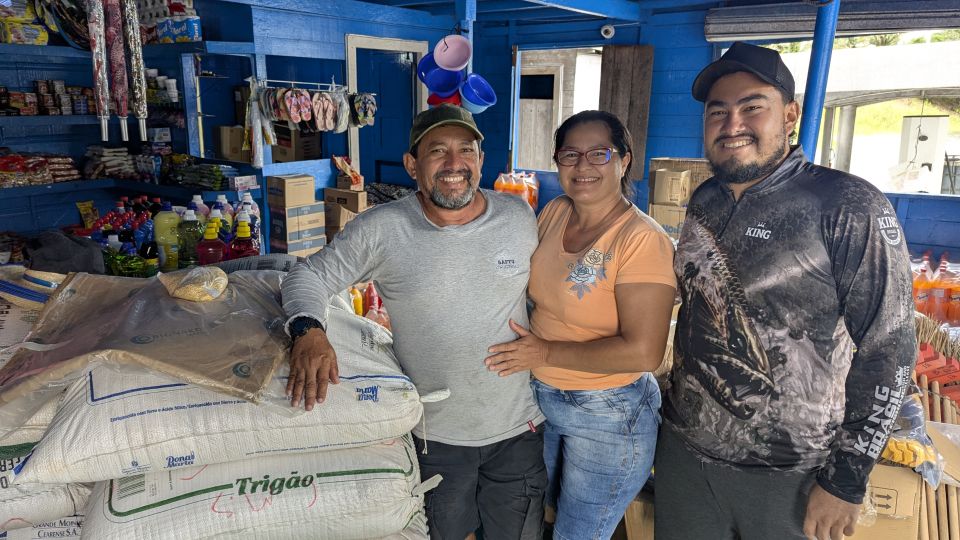
Business Owners, Jose Roberto Torres Araujo and his wife, Araide Zacarias Araujo, and son Ardaico Zacarias Araujo run a local supply store on the Madeira River, near the project site, and are excited about the increase in business the mine will bring to their community.
-
7 of 11
School Project
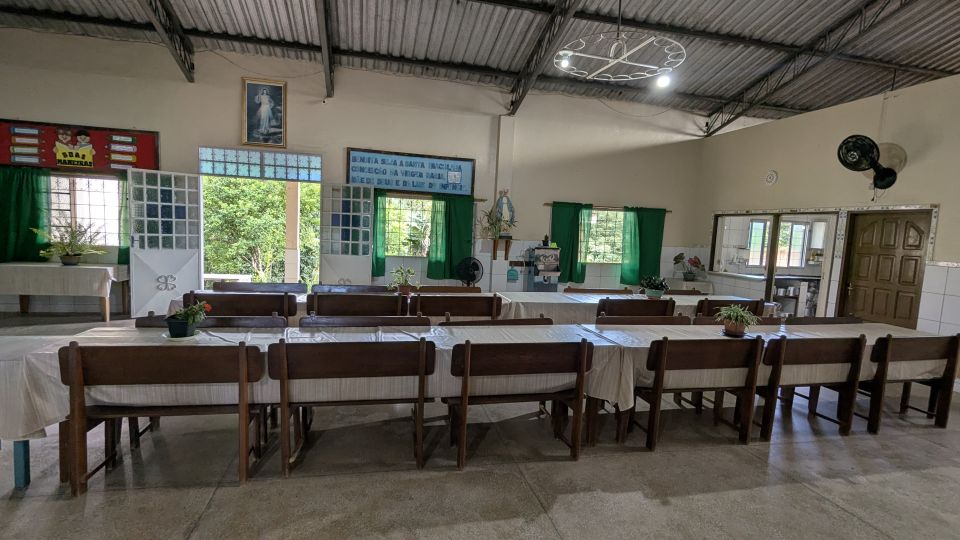
As a social project, Potássio do Brasil financially supports Entity Casa da Luz da Infância de Autazes, a school that provides meals and tutoring for elementary to high school students who need educational and wellness support.
-
8 of 11
Tree Nursery
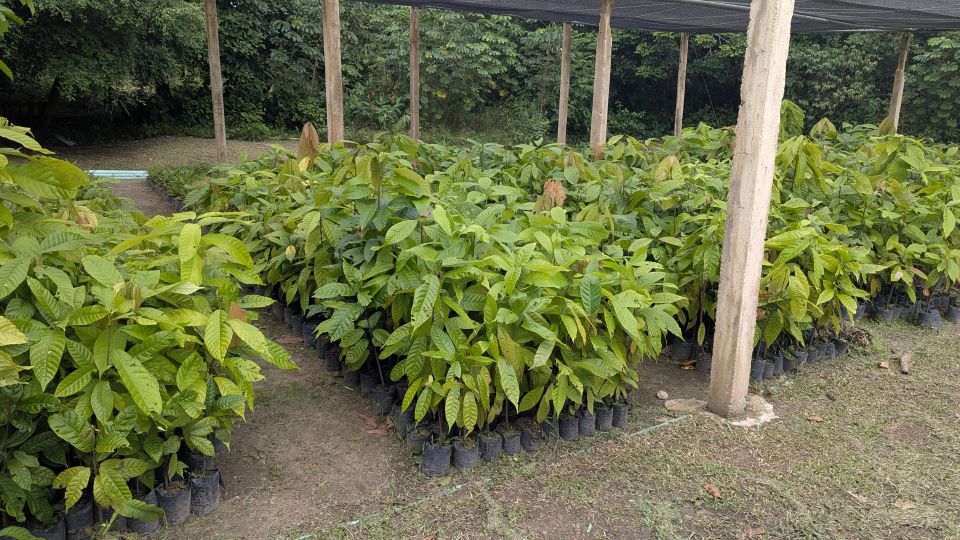
The Potássio do Brasil Nursery in Autazes is growing and giving away thousands of seedlings for cacao, cashew, passion fruit, moringa, and other native trees to help restore vegetation in the region affected by cattle herding and burning.
-
9 of 11
Meeting at CIM Headquarters
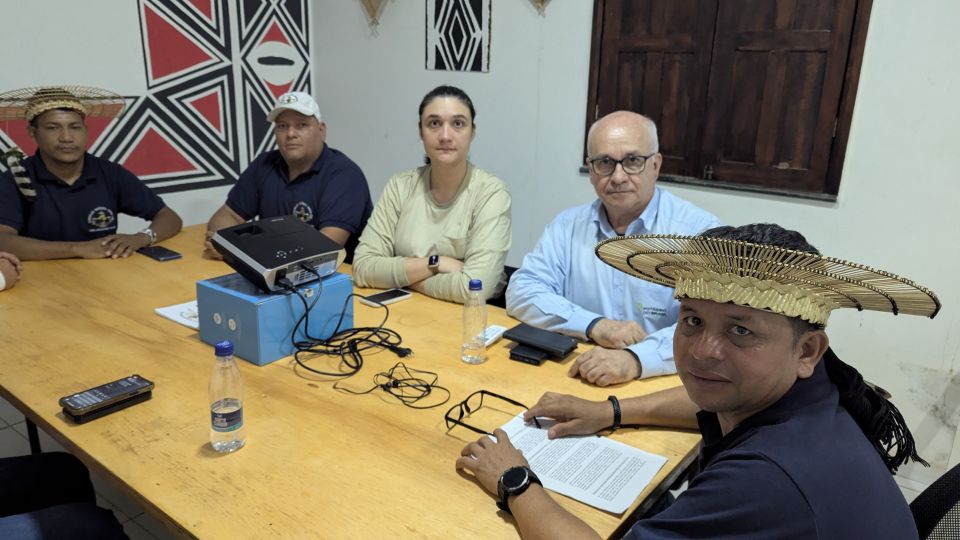
Mura Indigenous Council/Conselho Indígena Mura (CIM) meeting with Potássio do Brasil staff. (From left to right) Ediel Mura, Tuxaua and Chief Treasurer for CIM; Evandro Carioca, CIM Assistant; Rebeca Larrat, Legal Director for Potássio do Brasil; Adriano Espeschit, President of Potássio do Brasil, and Kleber Mura, General Coordinator of the CIM.
-
10 of 11
Samples of Site
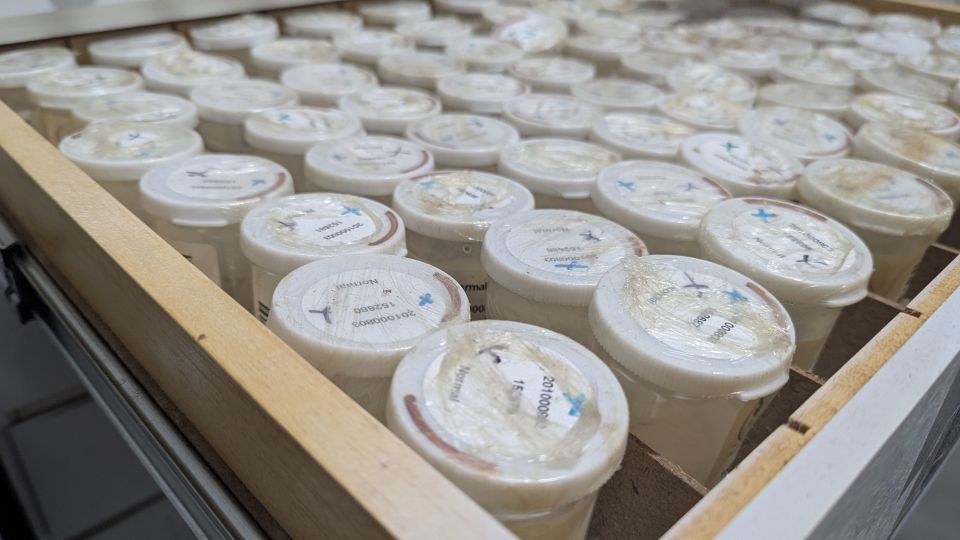
As a part of their license, Potássio do Brasil needs to take samples of the area to maintain its permit.
-
11 of 11
Potash
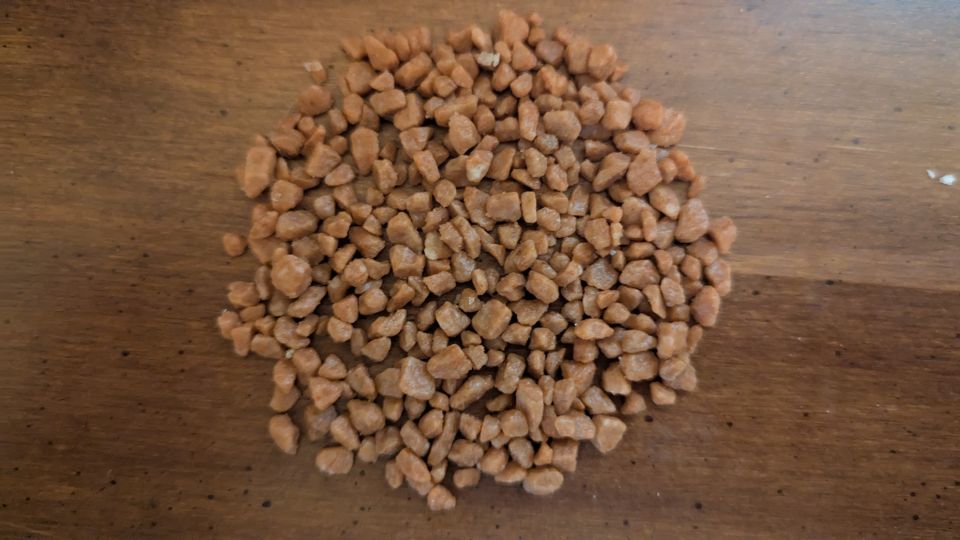
The final product from the site is potash, a coveted fertilizing product in Brazil and around the world.
View all
Potash Mining Site
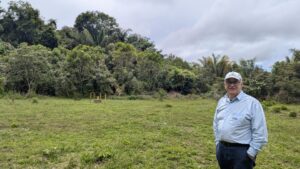
Road to Port
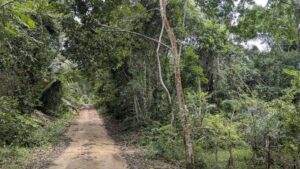
Urucurituba Village
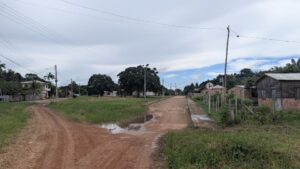
Urucurituba Village Square
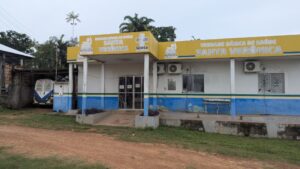
Port Site
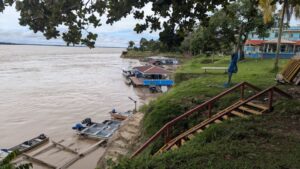
Local Business Owners
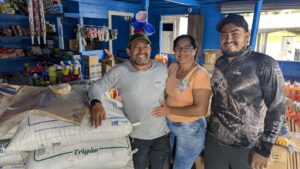
School Project
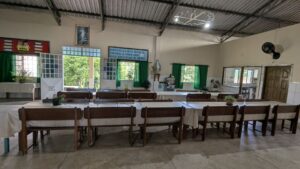
Tree Nursery
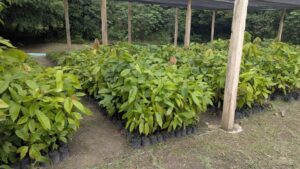
Meeting at CIM Headquarters
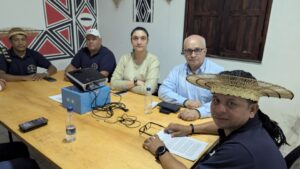
Samples of Site
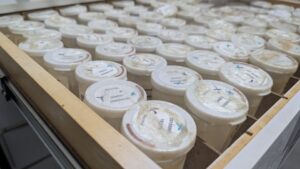
Potash
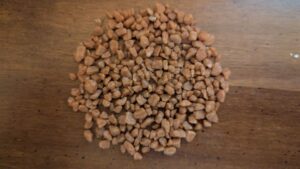
By Renee Targos
The Autazes Potash Project site is on an upper plateau on shore of the Madeira River, near Autazes City in Brazil’s State of Amazonas.
It is the largest potash fertilizer project in Brazil and one of six current fertilizer endeavors from various companies striving to meet the country’s 2023-2050 National Fertilizer Plan (Plano Nacional de Fertilizantes or PNF) for reducing imports by 50% and achieving technological autonomy by 2050.
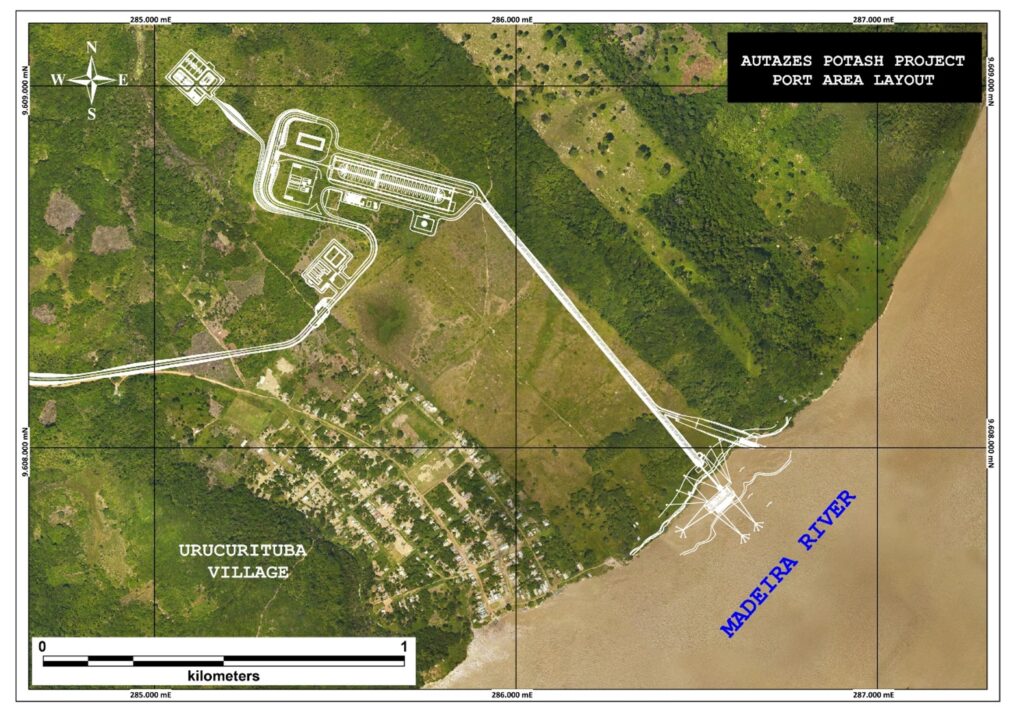
Caption to come
With the Ukraine-Russian conflict causing potash prices to double in 2022, Brazilian government leaders passed the PNF to avoid a similar scenario in the future. But as of last year, Brazil is still importing 89% of the 46 million tons of NPK (nitrogen, phosphorus, potassium) consumed annually.
Adriano Espeschit, President of Potássio do Brasil, a Brazilian company controlled by the Canadian company Brazil Potash, heads the Autazes Potash Project.
A seasoned mining executive who has worked in Australia, Canada, and Brazil, Espeschit is experienced in environmental licensing and community engagement processes.
But this project has a special set of circumstances: the mine is 800 meters below the surface in the Amazon.
While the current project is not located in protected rainforest or on indigenous land, but rather on low-density cattle farming land deforested by prior owners several decades ago, non-government organizations voiced concern.
After the first drilling in January 2010, the project had several stops and starts, including the need to comply with rigorous permitting procedures and addressing community engagement requirements. After holding numerous community meetings, completing consultations, and starting a continuous dialogue with representatives of the Mura Indigenous Peoples to discuss environmental and socioeconomics impacts on the region, the company has obtained 21 installation licenses for construction of the Autazes Potash Project.
On 14 February 2025, Espeschit presented an update to Geraldo Alckmin, Vice President of the Republic of Brazil at the headquarters of the Ministry of Development, Industry, Commerce, and Services (MDIC). The PNF is overseen by CONFERT – the National Fertilizer Council, chaired by Alckmin, who reports directly to Brazil’s President Luiz Inacio Lula da Silva. Fertilizer ranks high in importance for Brazil, a country that ranks as one of world’s leaders in food production and the third largest exporter of agricultural products.
José Carlos Polidoro, Advisor in Strategic Programs and Projects and Executive Secretary for the Ministry of Agriculture, Livestock, and Supply (MAPA) and Senior Researcher for Brazilian Agricultural Research Corporation (EMBRAPA), a government formed organization founded 1973 to promote research, development and innovative solutions for sustainable agriculture, says several projects are underway to meet PNF goals and deadlines.
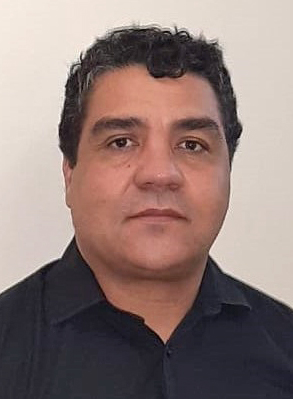
José Carlos Polidoro, Ministry of Agriculture, Livestock, and Supply (MAPA)
“Brazil has not had a public policy for fertilizers in the last 40 years,” says Polidoro. “With the PNF, after three years of existence, there are two new nitrogen fertilizer projects (Tres Lagoas/MS and Macae/Rio de Janeiro), a new potassium project in the state of Sergipe, and two new phosphate projects in Minas Gerais and Ceará.
“These projects, added to the Autazes Potash Project, plus the resumption of three Petrobras S/A (nitrogen) factories that are currently dormant,” Polidoro continues, “will make Brazil produce 50% of nitrogen fertilizers, 60% of phosphate fertilizers, and up to 35% of potassium fertilizers by 2030.”
However, the journey is a difficult one. Espeschit ran into several roadblocks that the PNF is now starting to address at the Autazes Potash Project and other sites. “Environmental issues are indeed a priority, and we are connecting the federal, state and municipal licensing processes into a single one, increasing transparency,” says Polidoro. “Likewise, we are organizing governance on social issues, as we not only see not in Autazes/AM but also in Santa Quiteria/Ceara, a phosphate project.”
In parallel with licensing efforts, in July 2025, the PNF is inaugurating the public-private institution of the Center of Excellence in Fertilizers and Plant Nutrition (CEFENP) to “develop technologies, attract investments for the production of innovative fertilizers, and train professionals from the industry to the farm,” says Polidoro.
The Site
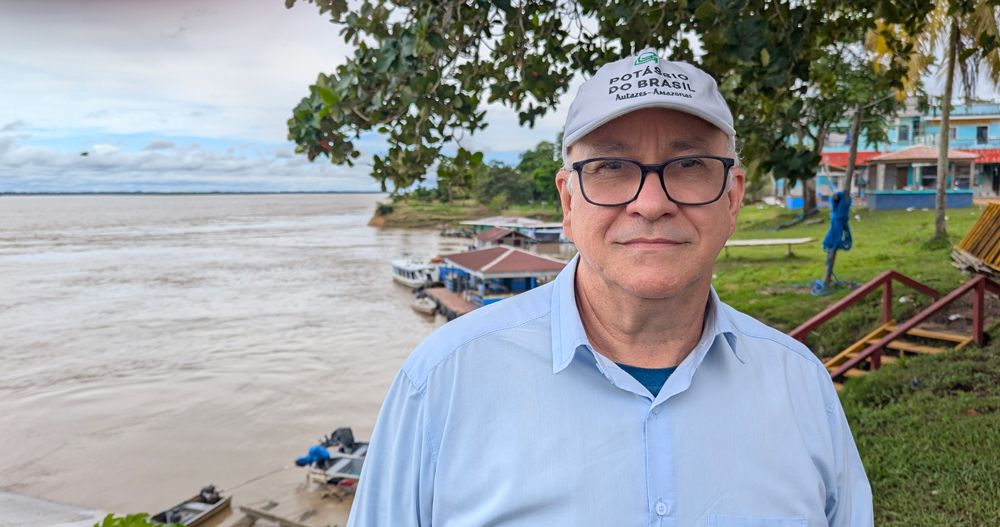
Adriano Espeschit, President of Potássio do Brasil, standing at the current port for the village of Urucurituba on the Madeira River.
While the Brazilian government works toward addressing issues with producing fertilizer in country, companies like Potássio do Brasil are facing challenges.
The current amount invested in the Autazes Potash Project is USD $270 million. An additional USD $2.5 billion will be invested to build the 500-hectare above-ground plant in addition to mining the potash deposit (13km by 10 km) 800 meters below the surface. There is also constructing a road from the plant to a port in the nearby village of Urucurituba to transport potash down the Madeira River by barge.
Espeschit says the Autazes Potash Project site can be mined for 23 years, producing more than USD $1 billion in potash sales per year.
As he stands in the clearing near a drilling site surrounded by less than 5-year-old trees and cleared pastureland, he points out where buildings for the plant will stand.
“Imagine, we can have potash here for the full need of our growers and to export for several years,” Espeschit says.
While Brazilian growers need potash, as well as growers around the world, the locals and Mura People had their own perspective of the project.
The Mura People
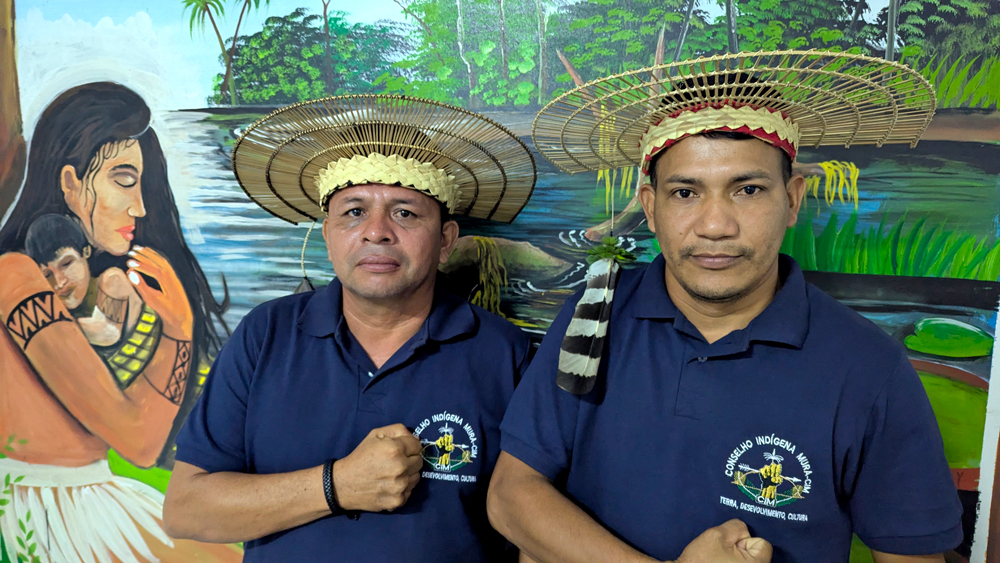
Kleber Mura, General Coordinator of the CIM (on left) and Ediel Mura, Tuxaua and Chief Treasurer for CIM (on right) standing in front of a mural at CIM office.
In a one-story brick building in Autazes, the headquarters of the Mura Indigenous Council/Conselho Indígena Mura (CIM), Kleber Mura, General Coordinator of the CIM; Ediel Mura, Tuxaua and Chief Treasurer for CIM; and Evandro Carioca, CIM Assistant sit down at an office table with Potássio do Brasil staff to discuss recent events and share their perspective on the Autazes Potash Project. The meeting comes after a long day of talks and shared celebrations at an internal Mura People’s Conference bringing together the Chiefs and members of 36 Mura tribes located in the municipality of Autazes.
The backstory of the complex relationship between the company and indigenous people spans over a decade. In 2015, Potássio do Brasil hosted public hearings with more than 4,500 people, including locals and Mura People, in accordance with Brazil’s process for obtaining a permit for the site.
A non-government organization contested that the Mura People were not consulted in accordance with the International Labor Organization (ILO) 169, which states indigenous people will access free and informed consultation in a manner of their choosing and in accordance with their own Consultation Protocol.
Potássio do Brasil management voluntarily agreed to have the company’s license temporarily suspended to ensure compliance with ILO 169. The Mura People established their own criteria for participation. As such, the Mura People constructed the Protocol of Consultation and Consent of the Mura People of Autazes, in which they required at least 60% of the tribes to be involved and 60% of the votes in favor.
The consultations began in November 2019 and concluded in September 2023, with a hiatus between 2020 and 2022 due to the COVID-19 pandemic.
In September 2023, 34 of the 36 villages voted, which was a historic 94% of tribal members’ participating with more than 90% voting in favor of the project under a mutually agreed framework that includes social and environmental commitments.
This past January, Potássio do Brasil signed a Preliminary Cooperation Agreement with the Mura Indigenous Council (CIM) of Autazes establishes a preliminary framework for collaboration between the Project and the Mura Indigenous communities with the implementation of the “Plano Bem Viver Mura” – which is a sustainable development program. The company also began investing in social and cultural development initiatives for indigenous villages represented by CIM; and a commitment to socioeconomic and environmental programs aligned with current environmental licensing and legal requirements.
Kleber and Ediel are observing the benefits of the project.
“One of the pillars of our meetings is to uphold our culture,” says Ediel. “Now we have the opportunity to restore our culture.”
Mura People leaders are putting funding toward uniting the tribes, like the recent conference, and promoting Mura People culture in art projects.
“The work done by these artists, with the project’s support, can revamp the art program and spread more information about their culture,” says Ediel.
When asked about the long-term effects on the environment, Kleber says, “We invited people from the university that were specialists. We have the knowledge of the measures that the company will put in place to mitigate or avoid an impact on the environment.
“Based on the information we received with the work is at 800 meters deep, well below the aquifers and rivers, with the technology they will implement, there is no way to create a difference in the rivers,” Kleber continues. “We are guaranteed the safety of hydro resources. The extraction method will not provoke vegetation suppression or disturb the natural ecosystem.”
The Mura People is also interested in the reforestation efforts of the Potássio do Brasil Nursery, which is growing cacao, cashew, passionfruit, moringa and other native trees to give away to the community to replenish forest that has been burned or destroyed by cattle.
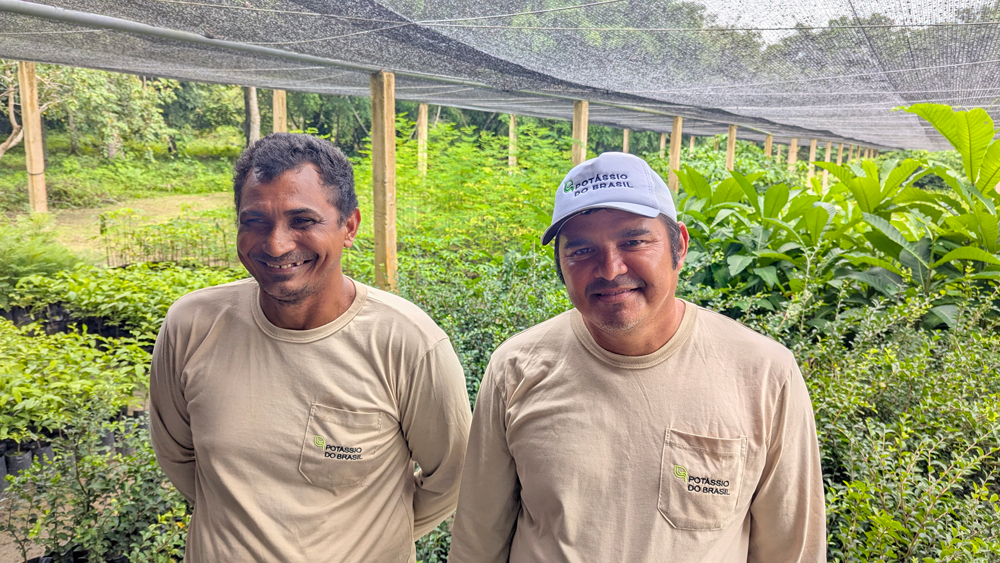
Leilson Oliveira, Agroforestry Technician/Manager (left) and Gederson Lima, Agroforestry Assistant (right) for Potássio do Brasil Nursery.
“We will have more health, more jobs, and the guarantee of our culture will be around for future generations,” says Kleber. “We will have programs that will benefit our culture and economy.”
The Community
Kleber and Ediel aren’t the only ones excited about the financial increase the project is going to bring.
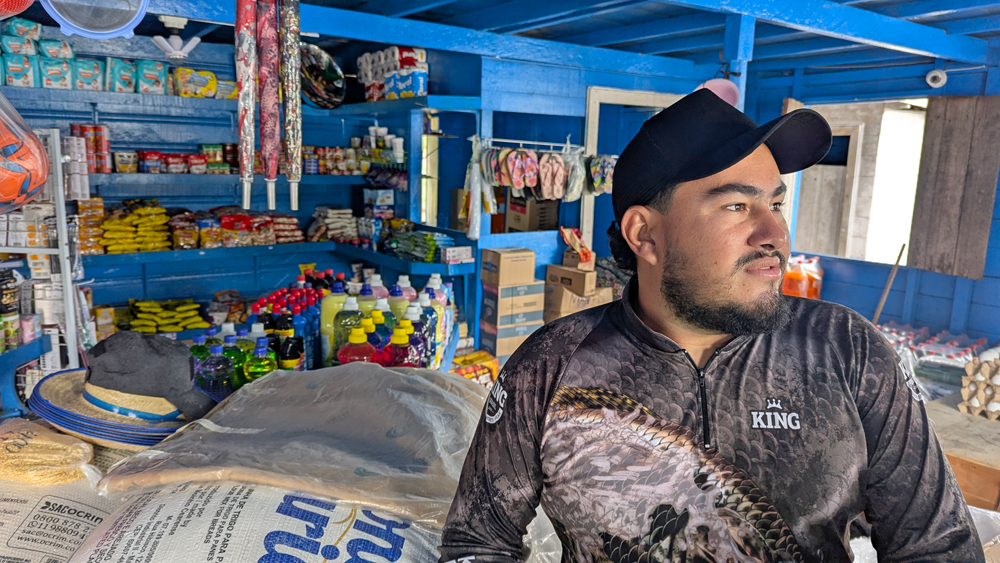
Ardaico Zacarias Araujo runs a grocery/supply store with his parents on the Madeira River, near the Autazes Potash Project site.
Store Owners Jose Roberto Torres Araujo and his wife, Araide Zacarias Araujo, and their son, Ardaico Zacarias Araujo run a grocery/supply store on the Madeira River, near the project site. They’ve been in business for the last 20 years. With the Autazes Potash Project bringing potentially 2,600 jobs during the construction phase and 1,300 jobs for the 23 years of mining, this can only mean more money for the local businesses.
Ardaico thinks about his 7-year-old son’s future. With Potássio do Brasil investing in the tree nursery and local schools, Ardaico says it complements his work to improve conditions, as he recently installed the internet at the local school.
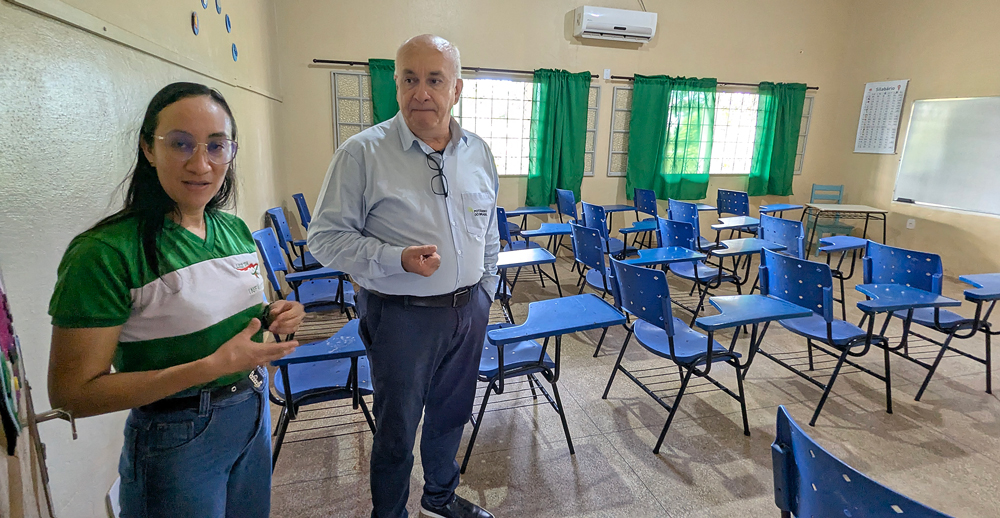
Eva Cristina Farias de Menezes, Manager of the Entity Casa da Luz da Infância de Autazes, AM and Espeschit in a classroom, where local children get tutoring.
The company is also supporting the Entity Casa da Luz da Infância de Autazes, AM, which is a faith-based non-profit organization giving supplemental support to children through tutoring and meals. This program helps to keep children healthy and on track for completing their education.
In addition to the educational support programs, Ardaico thinks the mine will also improve employment opportunities.
“The typical work here around the area that is ranching or other things. I had to move to Manaus to work in a bag manufacturing company before moving back. With the project, my son will have opportunities closer and won’t have to move away,” says Ardaico.
The Outcome
With almost 30 million tons of potash needed by 2050 in Brazil alone, the project holds an important role not only in its home country but also as geopolitical tensions rise between countries providing potash, like Canada and United States, and as growers need to feed an increasing world population.
While Brazilian and other growers are increasing their adoption of biostimulants, they will never replace fertilizers.
“Biostimulants can increase the efficiency of NPK fertilizers,” says Polidoro. “They do not provide the nutrients in the necessary quantities in their composition. They will never replace them.”
As the project moves forward, not all Mura People members are supportive as well as environmentalists, but with a book full of hundreds of names of locals and Mura People members, the people who live in the region want the project, even with the changes, for the development it will bring.
The Brazilian government continues to support efforts to help to stabilize crop inputs needed for their growers.
“Brazil is becoming one of the best destinations for investments in fertilizer production, trade and innovation in the world. Especially in a new industry that is based on the decarbonization of the economy, the increase in agronomic efficiency in the field and the rational exploitation of fertilizers,” says Polidoro.
“One example is the New Industry Brazil program, led by the Brazilian Ministry of Development of Industry, Trade and Services, which will allocate $700 million dollars to boost the technology-based fertilizer industry in the country,” Polidoro continues. “The Center of Excellence is waiting for multinational fertilizer companies to join us.” •
